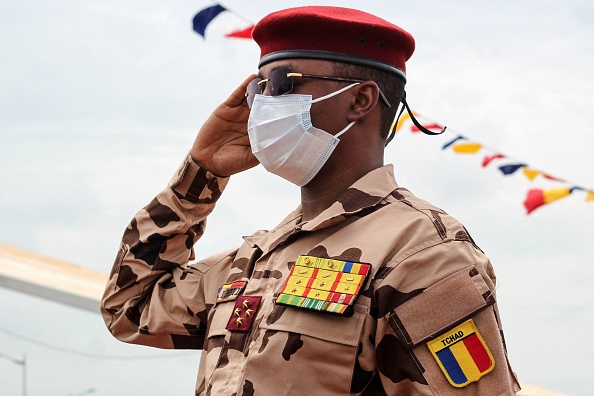N’Djamena – A year ago, the West African state of Chad was stunned when its 30-year leader, Idriss Deby Itno died from wounds after leading an operation against rebels.
But for many Chadians, the big worry today seems less the country’s political future under Deby’s 38-year-old son, General Mahamat Idriss Deby Itno, than how they can meet day-to-day needs.
Alain, 18, spends his day in the fierce sun, selling sachets of water near the Ardebdjoumal market in the Chadian capital N’Djamena.
At the end of the day, he makes barely 2 000 CFA francs – $3.25, or around three euros.
“This year is particularly difficult – I can’t sell my goods,” he admitted, asking not to be fully named.
“Deby senior ran things better than his son,” Alain said, lowering his voice to a whisper.
ALSO READ | A year after Chad coup, junta’s promises start to fade
The younger Deby was proclaimed head of a military junta and transitional president on April 20, 2021, the same day that the 68-year-old president’s dramatic death was announced.
Chad is the world’s third poorest country, according to the benchmark of the UN’s Human Development Index. The United Nations says 5.5 million Chadians need “emergency humanitarian aid”.
The World Bank says 42 percent of the 16 million population live in poverty.
And now they are facing record prices for staples such as oil and bread, with the war in Ukraine adding to the pain.
The roads need repair, power keeps failing and crude oil production, a mainstay of the country’s economy, is falling.
The International Crisis Group think tank reported last year that Chad spends 30-40 percent of its national budget on defence, a figure that the authorities denied.
The UN’s cultural body UNESCO says education accounted for 2.37% of Chad’s GDP in 2019.
Soaring prices
Moussa Nouerma, a 29-year-old cigarette seller from southern Chad, worked his way through the market with a tray of wares on his head, sweat beading on his face.
“I don’t make any money, but I have to do it to survive,” he shrugged.
Nouerma said his big concern was frequent power cuts and the rising cost of food.
“A year ago, a plate (of plain rice) cost 250 francs – today it’s 300 francs,” he said.
“We are feeling the cost of living more under Deby junior.”
On the dusty, windswept streets of the capital, little seems to have changed over the year.
ALSO READ | Prayers but no peace talks: Chad rivals bide time in Qatar
Campaign posters for the late president, who died nine days after elections, are still stuck on the walls. Children beg for money at traffic lights.
Along the aisles of N’Djamena’s main market in the Ambassatna area, beggars line up holding out their bowls.
Lea, 30, halted at a stall to buy vegetables but was taken aback by the prices.
“We can’t even fill our baskets this year – prices at the market have tripled,” she said. “The state should intervene to regulate.”
A man on a moped who gave his first name as Patrick agreed.
“Prices have soared during Ramadan – everything is expensive,” he said.
Demonstrations have been organised over recent months in the capital to protest against the increasing cost of living.
“Social issues are a problem for the authorities,” said political science researcher Kelma Manatouma. “They can cause trouble.”
Follow African Insider on Facebook, Twitter and Instagram
Source: AFP
Picture: Getty Images
For more African news, visit Africaninsider.com


